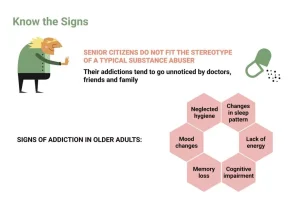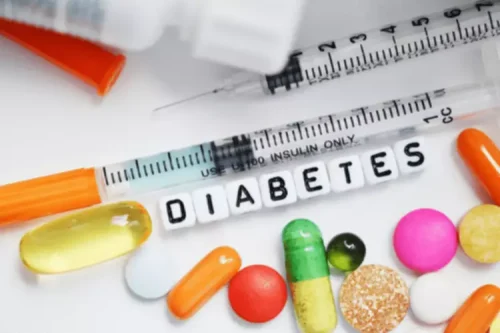
People in the throes of addiction are not capable of the best form of friendship. Further, those friends can serve as a cue that sets off drug craving and challenges the recovery process. Guilt refers to feels of responsibility or remorse for actions that negatively affect others; shame relates to deeply painful feelings of self-unworthiness, reflecting the belief that one is inherently flawed in some way.
Learn more about RECO’s dual diagnosis program here.

Every person needs a comprehensive recovery plan that addresses educational needs, job skills, social relationships, and mental and physical health. Therapy may be critical to resolving underlying problems that made escape into substance use so appealing in the first place. They also value having role models of recovery and someone to call on when the recovering self is an unsteady newborn.
- Qualitative findings are not meant to generalize, butrather to understand the experience of individuals with a livedexperience.45 Some of the collected surveys were not entirelycompleted.
- You may start to feel left out as your friends will be on a different level to you under the influence.
- The Daily Occupational Questionnaire (DOQ) was used tocollect data on participants’ typical daily activities for one’s self identified“most busy” and “least busy” days.
- The participants also indicated that rest was the mostfrequently new and important aspect of their routine.
More Questions about Treatment?

Negotiating with oneself for a delay of use, which doesn’t deny the possibility of future use, and then getting busy with something else, capitalizes on the knowledge that cravings dissipate in about 15 minutes. reframing holidays in early recovery We also use different external services like Google Webfonts, Google Maps, and external Video providers. Since these providers may collect personal data like your IP address we allow you to block them here.
Navigating the Challenges of Early Recovery: Tips for Success
- Participant 1 similarly reported that they wanted to get backto gardening.
- Of that,recreation/social was new 0 times (0%) and important 16 times (28.1%).
- The following are some of the most common challenges people encounter during their first year of recovery from addiction.
- Staying tethered to the present and being mindful of one’s internal experiences can help a lot in early recovery.
- During this time, the body goes through a detox process to get rid of the drugs or alcohol, and the brain has to adjust to not having the “high” feeling.
Addiction is a progressive illness of the mind and body and over any given period of time the sufferer will always get worse, never better. By implementing these strategies, individuals in early recovery can successfully identify and avoid triggers. This improves their chances of maintaining long-term sobriety and achieving a healthier, addiction-free life. Joining communities where you live with others in recovery provides support, structure, and accountability. Building a supportive network is not just about receiving support, but also actively supporting others in their recovery journeys.

Addiction Recovery: Overcoming Your Alcohol or Drug Problem
- Regular physical activity, whether through weight training, cycling, or group fitness classes, releases endorphins—natural mood lifters that greatly enhance one’s outlook on life.
- Setting and achieving goals is a powerful motivator in early recovery.
- Taking on one moment at a time is a good pace for early recovery.
- Establishing a structured routine is also vital in early recovery.
- Many types of recovery support are available, and many people make use of more than one type at any time and may shift from one type of support to another as recovery proceeds and needs evolve.
- Knowing what to anticipate during the early stages of recovery can better equip individuals with the necessary tools to conquer obstacles and celebrate victories.
Unfortunately, few of us get to abide in such a carefree state for long. Problems arise, bad things happen, and sometimes we just feel bad for no apparent reason. Dealing with difficult emotions is one of the biggest recovery https://ecosoberhouse.com/ challenges because drug and alcohol use often begins as a way of coping with these kinds of emotions. Stress is perhaps the biggest culprit but shame, anger, grief, sadness, and anxiety are major challenges as well.

Emotional Processing
During the initial six months of recovery, it is important to know what to expect. Maintaining sobriety during early recovery can feel precarious, but with proper planning, support and self-awareness, it can be a safe and successful process. Cultivate a gratitude practice to shift your focus from what you’ve lost due to addiction to what you’ve gained in recovery. Regularly acknowledging the positive aspects of your life can boost your motivation and resilience. Keeping an occupied mind and a good emotional balance are pillars of long-term sobriety.
The information we provide is not intended to be a substitute for professional medical advice, diagnosis or treatment. It should not be used in place of the advice of your physician or other qualified healthcare providers. Results of the current study indicate that participants are most frequentlyengaging in rest, which may include sleep, relaxation, and other down-timeactivities (31.0% of the time of the most busy day and 36.6% of the time on theleast busy day).
It may include rediscovering a work or social role, finding new recreational interests, or developing a new sense of spiritual connection. The important feature is that the interest avert boredom and provide rewards that outweigh the desire to return to substance use. Researchers have studied the experiences of many people who have recovered from substance use and identified key features of the recovery process.
What Is Addiction Recovery?
By developing healthy habits and routines, individuals can avoid triggers that may lead to relapse. This structure provides stability and purpose, helping individuals stay focused on their recovery goals. By incorporating these essential habits into your daily routine, you can build a solid foundation for your recovery. Remember that seeking professional guidance and support is a critical component of your journey, ensuring that you receive the personalized care and strategies needed to overcome addiction. To navigate this period successfully, it’s essential to establish healthy habits that support ongoing sobriety and personal growth.
For example, if you were addicted to alcohol, your body might react with trembling hands, sweating, and even confusion as it adjusts to not having alcohol anymore. For someone recovering from opioids like painkillers, they might experience flu-like symptoms, muscle aches, and trouble sleeping. Stimulants like cocaine or methamphetamine can cause exhaustion, depression, and strong cravings during detox.
